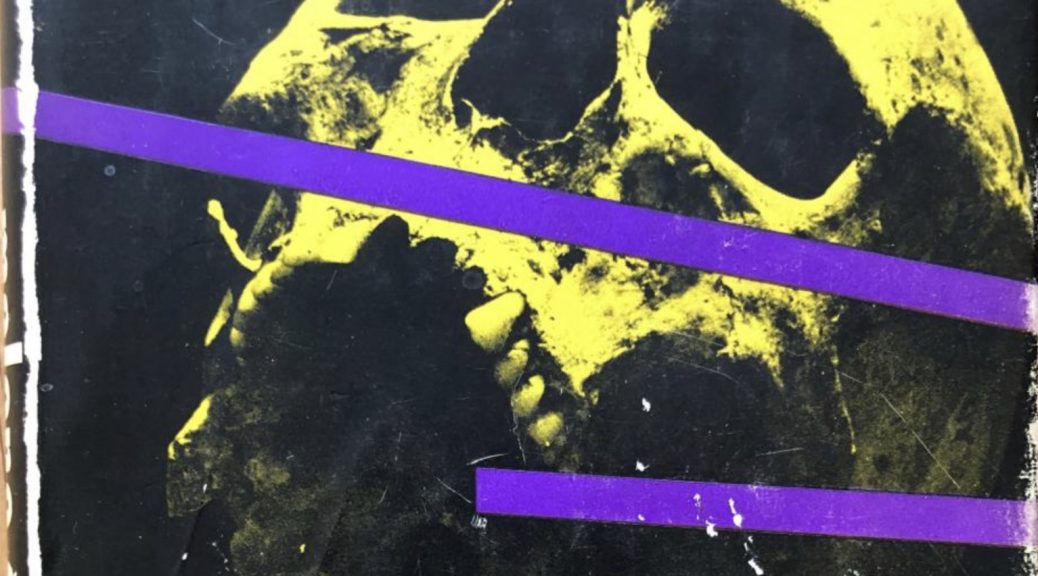Summer undergraduate research in the humanities can be a great opportunity for students who might be interested in graduate work. Many colleges have programs that pair students with faculty mentors; these experiences often begin work toward a major, capstone experience.
Carthage College, in Kenosha, WI, has such a program, the Summer Undergraduate Research Experience, or SURE. Each summer, between 25 and 50 students from across campus spend ten weeks on campus in collaboration with a faculty member on a new or developing line of inquiry. This summer, rising senior Caleb Hays (English/Public Relations) worked with English Professor Maria Carrig on Samuel Beckett, the Irish writer; CURAH recently got to hear a bit about it.
CURAH: Tell us about your project.
CH: My project centers on the renowned Irish writer Samuel Beckett. Mostly known for his theatre works such as Waiting for Godot, Beckett is also responsible for some wonderfully strange prose works. I had to produce a critical essay that would add something new to the conversation surrounding Beckett studies, a task much more difficult than it sounds. Beckett is an insanely popular author, and in searching through the hundreds of books and essays on his work one gets the feeling that everything to be written about him has already been written.
Yet, in my searching I started to get the feeling that the studies revolving around the author were largely about his theatre work, and painted Beckett as a pessimistic writer. I felt the latter was inherently false. The little I’d read of Beckett did have a certain weightiness to its content, but it was also extremely funny. I set out to uncover the underlying optimism in Beckett’s work by focusing on his trilogy of prose works, specifically his novel Malone Dies.
I worked for ten weeks with Professor Carrig as my supervisor, reading and discussing everything Beckett. Understanding this project would transfer over to my senior thesis, I concentrated on consuming as much material as possible. I read many of his plays and prose works, including many critical theorists and essayists pertinent to the subject. My paper took on a post-structuralist ideology in nature, focusing on the meta-fictional techniques used in Malone Dies and the multiple strata of narration concealed within the text. Ultimately, I came to view Malone Dies as being about the desire to reach a beginning, rather than an ending.

CURAH: What drew you to Samuel Beckett?
CH: I discovered Samuel Beckett’s work through a creative writing professor of mine, who mentioned to me in passing that I may enjoy some of his work. I was searching for a subject to complete my thesis on, so I read the first Beckett novel I could get my hands on: Watt. The novel was so unlike anything I had ever read, and I was hooked from the very start. I began to read more of his work, eventually coming to Malone Dies, finding myself so immersed in the work’s strangeness that I knew I had no other choice but to write about it. I have always loved modern, experimental writing that tests the limits of what fiction is capable of, so it was a perfect match.
CURAH: What were the easiest and hardest things about the work you were doing? Any surprises?
CH: The easiest part of my project was the reading. I read a lot of material through the course of the ten weeks, and I loved every minute. I was fortunate enough to receive a stipend for the work, so I spent my days doing nothing but reading and trying to make sense of some dense texts—which was a dream come true for any English major. The hardest part, while still enjoyable, was the actual creation of the paper. I had pages and pages of notes, but attempting to condense them and form a linear argument became quite difficult with the amount of material.
As far as surprises go, I suppose the biggest was how fulfilling the work was—I’ve never taken part in a project of this scope, so naturally I was nervous in the beginning. As the ten weeks progressed I realized how gratifying academic research of this level can be in its capacity to introduce new avenues of thinking.
CURAH: How has your understanding of Beckett grown?
CH: I’d like to say that my understanding of Beckett has grown a great deal, but I’m not sure that such a thing is possible. I have a greater respect for the depth of his work and the techniques he uses in his writing—but as a whole his writing is just as strange and otherworldly as when I first read it. In part, this is the beautiful thing about Beckett; reading his work is an experience, one that seems to change with time.
CURAH: How has the work informed your plans about the rest of college and beyond?
CH: The work I did this summer with Professor Carrig has made me seriously consider a career in academia. As of now my future is still uncertain, but the search for the appropriate graduate program is on the horizon. The project has given me a great deal, including the realization that being a student of literature is something I’ll continue doing for the rest of my life, regardless of career path.


